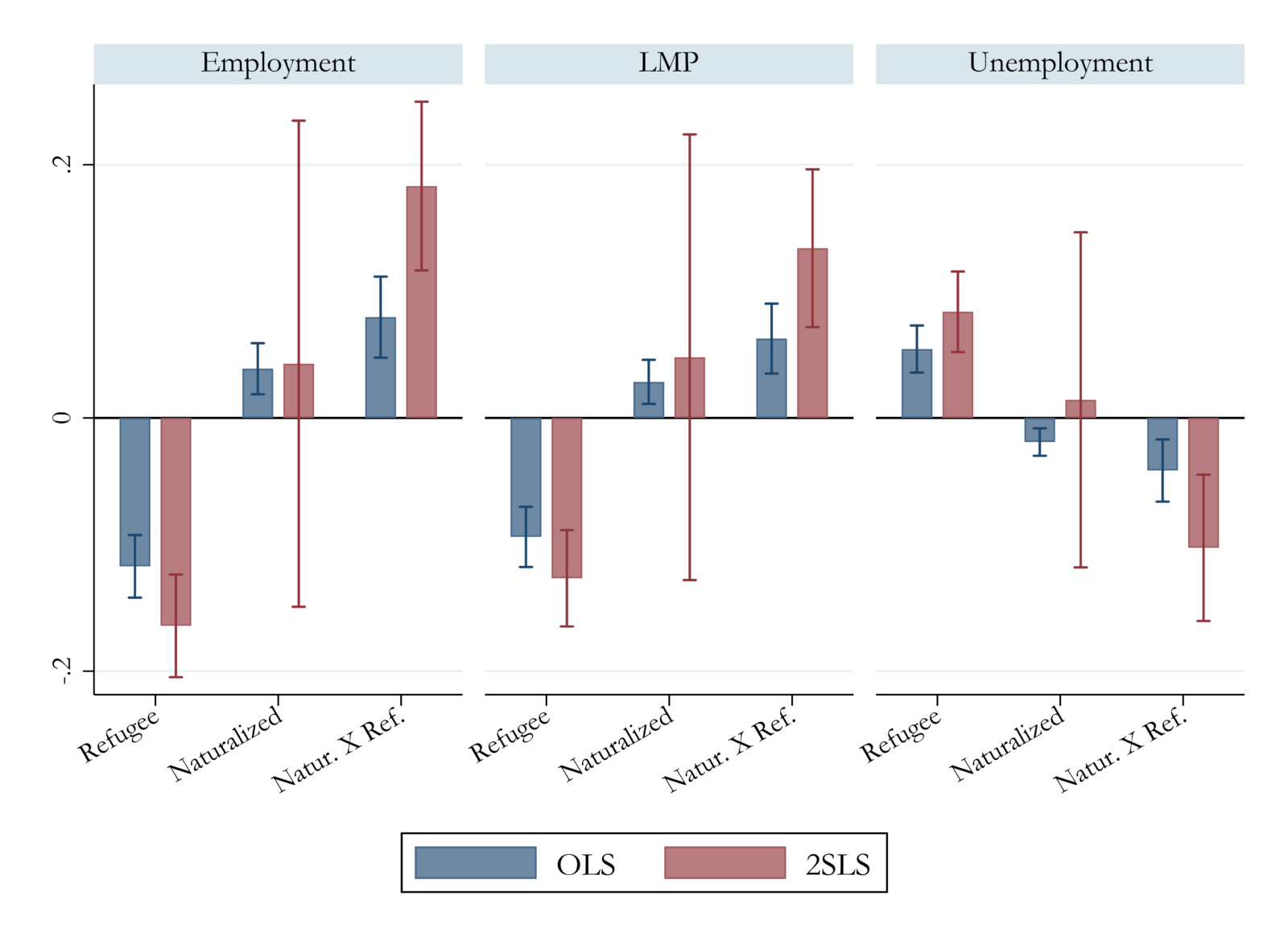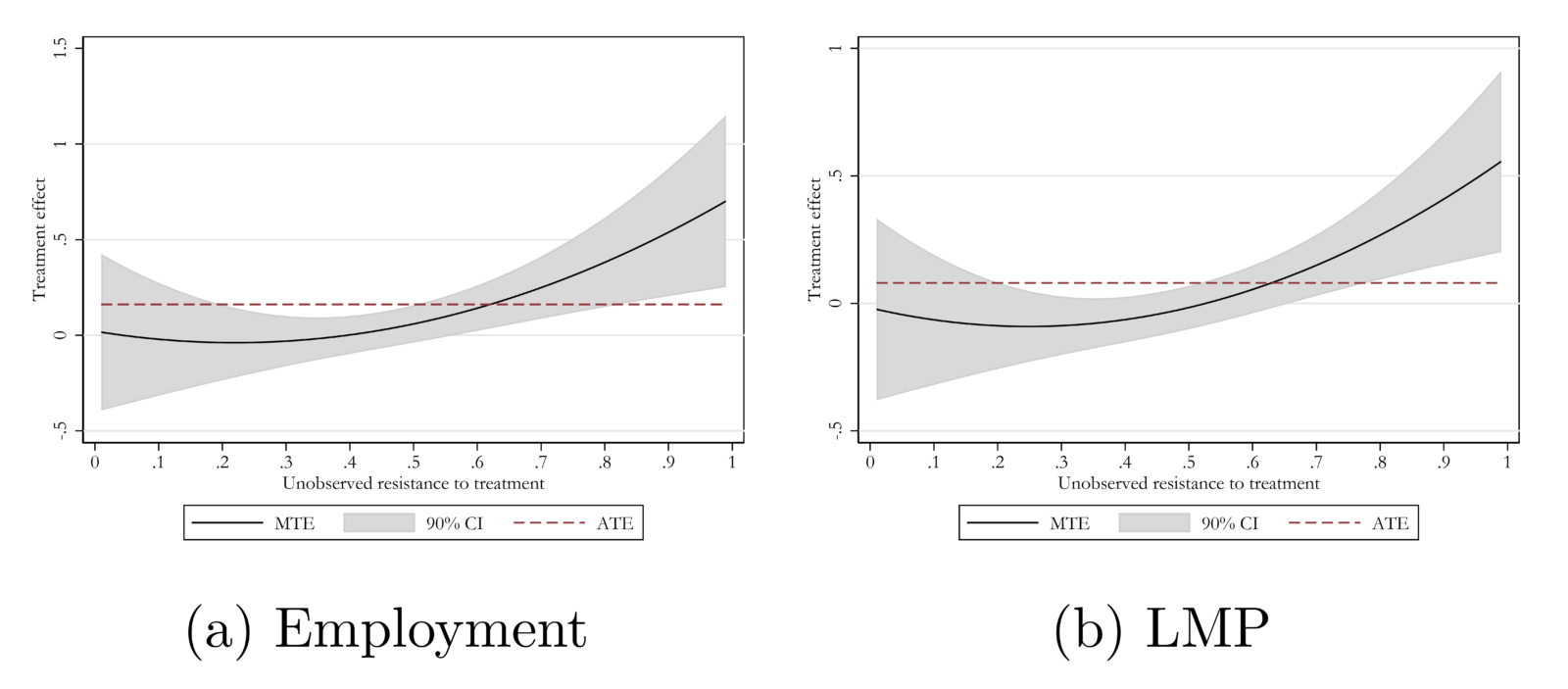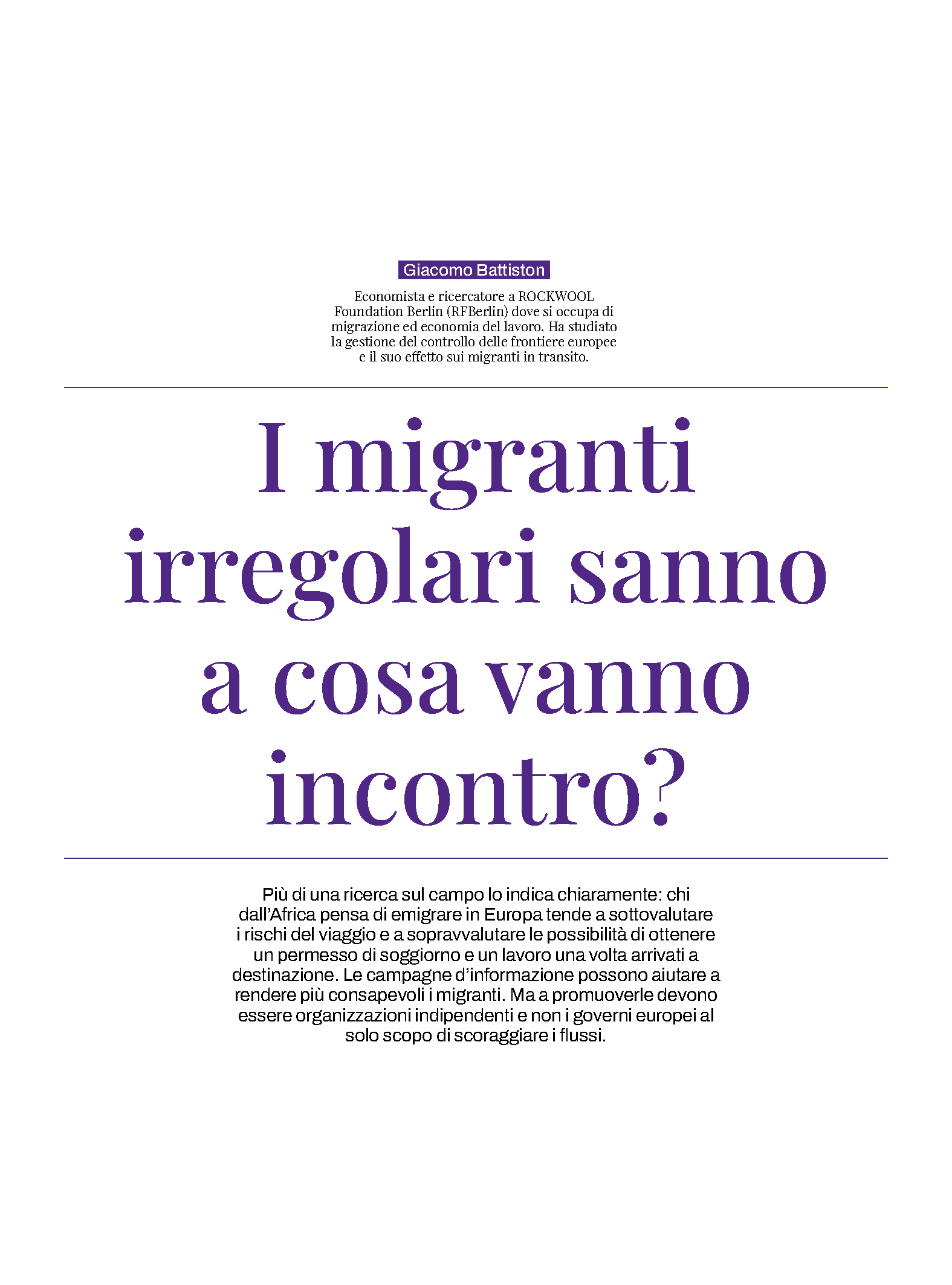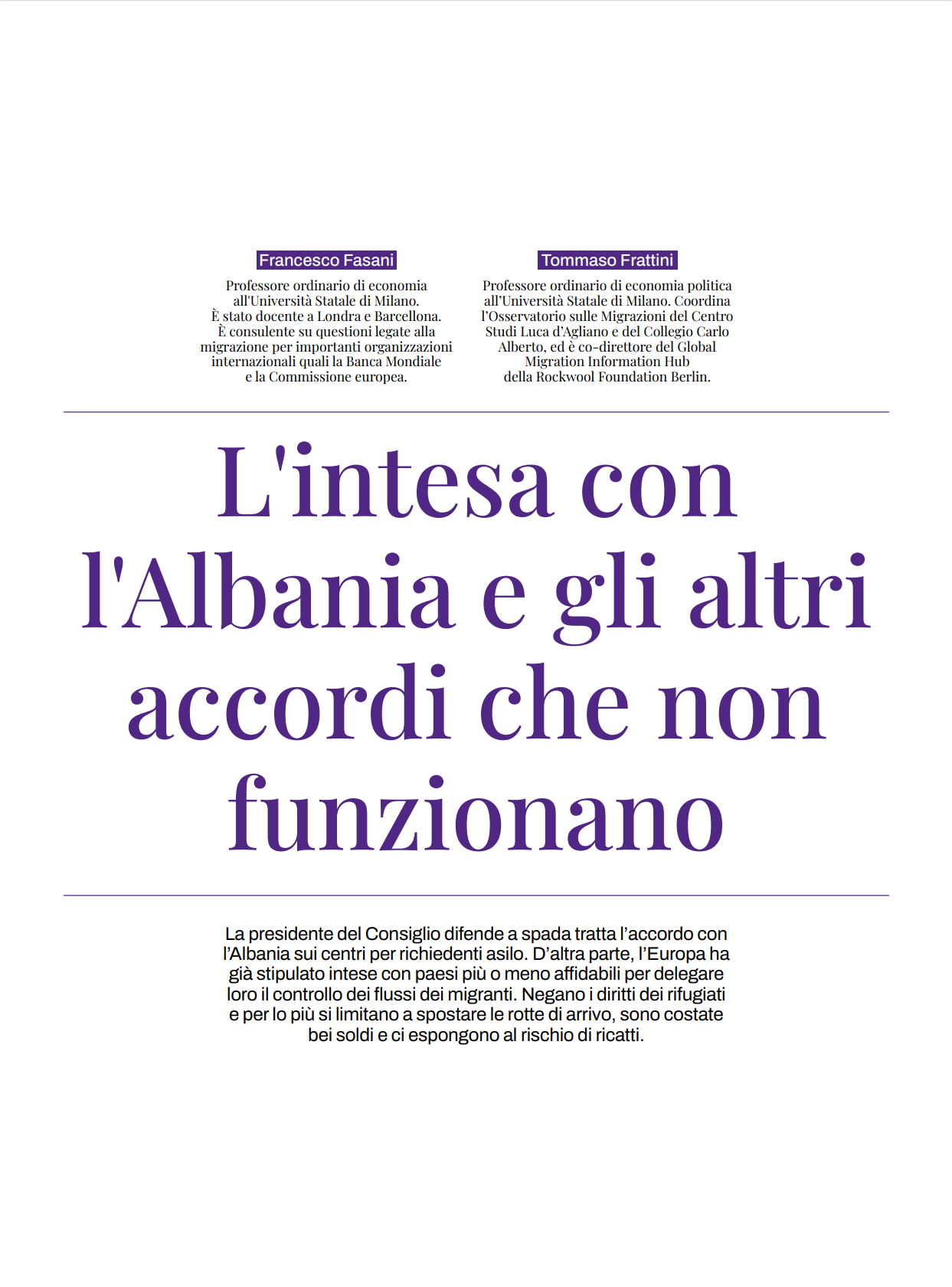Original piece written by research associate Francesco Fasani, deputy director GMIH Tommaso Frattini and Maxime Pirot on VoxEU column.
Abstract
This column explores the effects of granting host country citizenship to refugees in Europe, focusing on how it affects their jobs and economic integration. Evidence from a large set of European countries shows that refugees benefit greatly from naturalization, allowing them to bridge their gaps relative to other migrants with similar characteristics. The study further suggests that making it easier for everyone, not just refugees, to become citizens could boost economic activity and integration in host countries.
Introduction
The conflict in Ukraine and the ongoing surge in asylum seekers from African countries and the Middle East have been poignant reminders for European institutions that the arrival of displaced people is not an isolated event. This underscores the urgent need to enhance national asylum policies and promote greater coordination and cooperation at the EU level. While short-term responses to refugee inflows remain a domain where EU policymaking appears to be trailing, it is crucial to focus on medium and long-term interventions (Hasager et al., 2022; Dustmann et al., 2022). In 2014-2016, during the so-called European “refugee crisis,” over a million refugees sought asylum in EU member states. Their prospects for long-term settlement on the continent remain uncertain. Notably, many of these refugees are now becoming eligible for naturalization. In Germany, which received the highest number of refugees during those years, nearly thirty percent of migrants who acquired German citizenship in 2022 originally hailed from Syria. Germany is also currently bringing forward a reform of its citizenship law, which will make naturalization easier for its foreign residents by allowing multiple citizenships and reducing the minimum residency requirement to become a German citizen from eight to five years.
Economic Trade-Offs in Granting Citizenship
Countries typically limit the provision of citizenship to outsiders and often regard naturalization as a “crown,” a symbol of achievement for those who have attained a sufficient level of integration (Hainmueller et al., 2017). Citizenship is thus rationed by making eligibility conditional on the satisfaction of several different criteria (minimum residence duration, fluency in the national language, etc.). Such rationing may strengthen migrants’ incentives to invest in host country specific human capital and their integration efforts. Naturalization in host countries grants migrants access to significant legal rights and entitlements (e.g., unrestricted residency and international mobility, active and passive suffrage) but it does not generally have direct economic consequences. Still, an ongoing argument suggests that it can serve as a “catalyst” for the socioeconomic integration of immigrants within host countries (Vonnahme & Gathman, 2022). If the “catalyst” paradigm holds, it would logically follow for countries to offer naturalization to their foreign residents as early as possible, facilitating their integration and maximizing economic benefits for the host country.
European voters seem to be aware that a causal link may exist between immigrants’ socio-economic integration and citizenship status. Indeed, according to a recent Eurobarometer survey conducted in all EU member countries at the end of 2021, 57% of the EU citizens consider the act of acquiring host country citizenship as an important or very important step towards a successful integration of immigrants, with an additional 22% considering it quite important. The same survey, however, identifies widespread concerns about immigration from outside the EU: 31% of respondents think that immigration is more a problem than an opportunity, 38% see it equally as a challenge and an opportunity, while just 22% consider it more as an opportunity than as a problem. Such concern likely translates into resistance towards more open migration policies, including on citizenship.
Our paper
In a recent working paper (Fasani et al., 2023), we speak to this complex debate by pointing at potential large losses in terms of economic integration from excluding less integrated immigrants from accessing citizenship. If naturalization effectively facilitates labour market integration, host countries may deliberately employ it to enhance the economic and overall inclusion of specific migrant groups, particularly those facing greater challenges, such as forced migrants.
Using survey data from 21 European countries and leveraging variation in citizenship laws across countries, time, and migrant groups as a source of exogenous variation in the probability of naturalization, our empirical analysis revolves around two fundamental questions. First, does acquiring citizenship have a causal impact on the labor market outcomes of refugees, and does this impact differ from the effects of naturalization for comparable non-refugee migrants? Second – and more generally – does naturalization benefit the most foreign-born citizens who struggle to integrate and, therefore, to naturalize?
Empirically estimating the causal effect of acquiring citizenship on individuals’ labour market outcomes is not easy since the decision to naturalize is not random. Migrants who naturalize may be particularly determined to integrate into their new country, better informed about the bureaucratic procedures, or more able to fulfil the host country’s language skills or knowledge requirements. Naturalized immigrants might thus have unobservable characteristics that make them more employable, generating a spurious correlation between citizenship status and employment outcomes. To address this problem, we leverage exogenous variation (across countries, time, and between refugees and non-refugees) in citizenship regimes and instrument citizenship status with a predicted measure of years since eligibility. This variable is constructed by matching each migrant in the sample with information on minimum residence requirements based on their host country, arrival cohort, and migrant group at arrival. Thus, we exploit the fact that migrants who have satisfied the minimum residency requirement for longer have had more opportunities to naturalize than those who have satisfied it for a shorter time.
Our findings
In the first part of our paper, we demonstrate that refugees benefit substantially from naturalization relative to other migrants. Figure 1 reports OLS and 2SLS estimates obtained from regressing dummies for employment, labor market participation (LMP), and unemployment on a refugee dummy, a naturalized dummy, and the interaction of the two. The regressions further control for individual characteristics (age, gender, education) and dummies for area of origin, host country, year of interview and years since migration. The large and strongly significant estimates on the refugee dummy confirm that forced migrants tend to lag in their integration compared to other migrants with similar characteristics, as already shown in the literature (Fasani et al., 2022). The small estimates on the naturalized dummy and the much larger estimates on the interaction term imply that returns from naturalization are almost negligible (and imprecisely estimated with 2SLS) for non-refugee migrants, while they are sizable for refugees. Our estimates suggest that refugees who naturalize then manage to bridge the gap with comparable migrants completely. These findings apply to both the extensive margin of employment and participation and to the quality of foreign-born workers’ jobs. These results thus suggest that obtaining citizenship offers greater advantages to those who encounter more challenges in their economic integration.

In the second part of our paper, we further investigate the heterogeneity in labour market returns to naturalization by focusing on differences in unobservable characteristics rather than on an observable one such as being a refugee or not. Implementing a Marginal Treatment Effects (MTE) approach, we can estimate the returns to naturalization for individuals with different so-called “resistance to treatment,” that is, with a different observed probability of naturalizing (given their observable characteristics). The MTE profiles we report in Figure 2 for the probability of being employed (panel (a)) and of being actively participating to the labour market (panel (b)) consistently indicate the presence of considerable heterogeneity with respect to unobserved characteristics. Specifically, the markedly positive slope of the MTE profiles implies that the greatest benefits from naturalization would accrue to individuals who are less likely to naturalize. According to our estimates, the returns from naturalization are estimated to be zero for the individuals who naturalize. At the same time, they would be positive and statistically significant for those who fail to do so (that is, the ATT, average treatment effect on the treated, is zero, while the ATUT, average treatment effect on the untreated, is positive).

Policy implications
While restrictive policies and conditionality of eligibility rules may generate positive incentive effects to integrate, one cannot ignore the risk that setting the bar too high may discourage the integration of those with a weaker labour market attachment (Arendt et al., 2023). These estimates strongly suggest that current citizenship regimes in European countries prevent access to naturalization precisely for those who could gain from it in terms of improved labour market integration. This finding thus implies that making eligibility rules more lenient for all types of migrants – and not just refugees – may potentially lead to more economically active and integrated migrant workers while yielding sizeable economic benefits for hosting societies.
References
Arendt, Jacob, Dustmann, Christian and Ku, Hyejin (2023) “Refugee integration policies can lead to poorer integration outcomes”, VoxEU.org, 22 Aug 2023
Fasani, Francesco & Frattini, Tommaso & Pirot, Maxime, 2023. “From Refugees to Citizens: Labor Market Returns to Naturalization,” CEPR DP 18675
Francesco Fasani & Tommaso Frattini & Luigi Minale, 2022. “(The Struggle for) Refugee integration into the labour market: evidence from Europe [Cashier or consultant? Entry labor market conditions, field of study, and career success],” Journal of Economic Geography, Oxford University Press, vol. 22(2), pages 351-393.
Hainmueller, J., Hangartner, D. & Pietrantuono, G. (2017), “Catalyst or crown: Does naturalization
promote the long-term social integration of immigrants?”, American Political Science Review 111(2), 256–276.
Hasager, Linea & Peri, Giovanni & Foged, Mette (2022) “Language training and placement in strong labour markets promote refugees’ long-run economic integration” VoxEU.org, 11 Dec 2022
Vonnahme, Christina & Gathmann, Christina (2022) “Citizenship policies and educational performance of immigrant children” VoxEU.org, 17 Nov 2022




